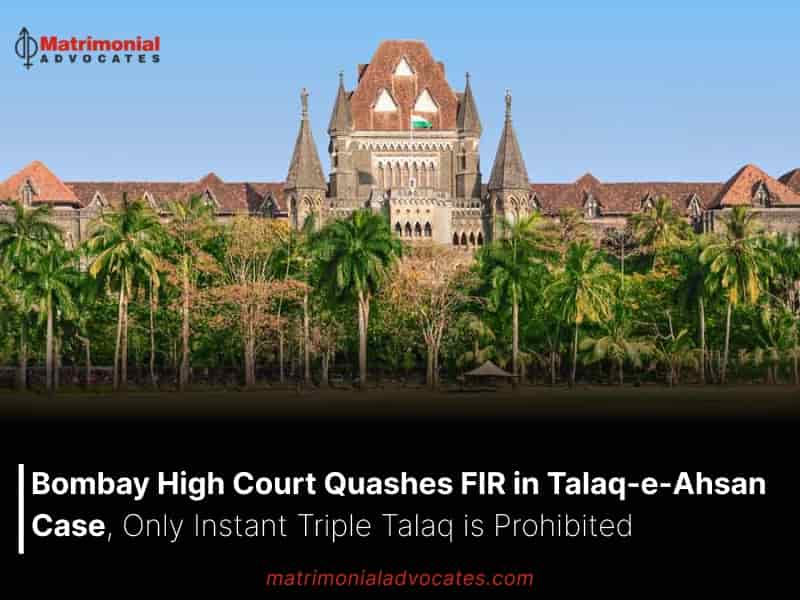
The Court made it clear that Talaq-e-Ahsan doesn’t violate the 2019 Act banning instant triple talaq.
On Wednesday, the Bombay High Court clarified that the Muslim Women (Protection of Rights on Marriage) Act, 2019, which criminalizes instant triple talaq, applies solely to the practice of immediate and irrevocable divorce known as Talaq-e-Bidat. It does not extend to the traditional Islamic divorce process, Talaq-e-Ahsan [Tanveer Ahmed and Ors v State of Maharashtra].
The Court made this ruling while quashing an FIR filed against a Muslim man and his parents under the law prohibiting instant triple talaq.
The man had divorced his wife using the Talaq-e-Ahsan method, which involves a single pronouncement of talaq followed by a 90-day waiting period, a practice still recognized under Islamic law. Despite this, an FIR was filed accusing him and his parents of violating the 2019 Act.
A Bench consisting of Justice Vibha Kankanwadi and Justice Sanjay Deshmukh noted that the form of divorce in this case did not fall under the category of prohibited practices.
“When the facts are admitted and taking into consideration the law, what was prohibited was the Talaq-e-bidat and not Talaq-e-Ahsan, It would be an abuse of process of law, if the applicants are asked to face the trial and therefore, case is made out for quashment of the FIR and the proceedings,” the Court said.
The couple married in 2023 and lived together in several cities across India for a few months. After marital disputes, the husband pronounced a single talaq in December 2023 in the presence of witnesses and subsequently issued a formal notice.
As the couple did not resume cohabitation during the 90-day waiting period, the divorce became effective under Muslim personal law.
The wife later filed an FIR at the Bhusawal Bazar Peth Police Station in Jalgaon, claiming that the divorce was illegal under the 2019 Act because it was irrevocable. She also alleged that her in-laws were involved in the decision and should be held equally responsible.
In response, the husband argued before the court that he had followed the Talaq-e-Ahsan method, which differs from Talaq-e-Bidat (instant triple talaq). His lawyers referenced previous court rulings that recognized Talaq-e-Ahsan as a valid and accepted form of divorce under Muslim personal law. The in-laws also denied any involvement in the decision.
In contrast, the wife contended that the divorce remained “irrevocable” and, as such, should fall under the purview of the Act, necessitating a trial.
However, the High Court disagreed with the wife’s argument.
The Court explained that the law specifically addresses divorces that occur instantly, without allowing for reconciliation. Additionally, the Court clarified that the Act does not apply to the in-laws.
“In fact, if this FIR is to be construed to Section 4 of the said Act, then it is restricted against husband only.”
The Court also rejected the application of Section 34 of the Indian Penal Code, which deals with common criminal intent.
“There is no question of Section 34 of Indian Penal Code involved in such FIRs. There cannot be a common intention of pronouncement of Talaq,” the Bench made it clear.
Crucially, the Court referred to the definition of “talaq” under the 2019 law, clarifying that it applies only to divorces that are both immediate and irrevocable. It emphasized that methods such as Talaq-e-Ahsan do not fall within this scope.
The Court also noted that the FIR itself acknowledged that the husband had followed the Talaq-e-Ahsan procedure and issued a formal notice, in accordance with the prescribed process.
As a result, the Court dismissed the FIR and the ongoing criminal case before the Bhusawal court.





